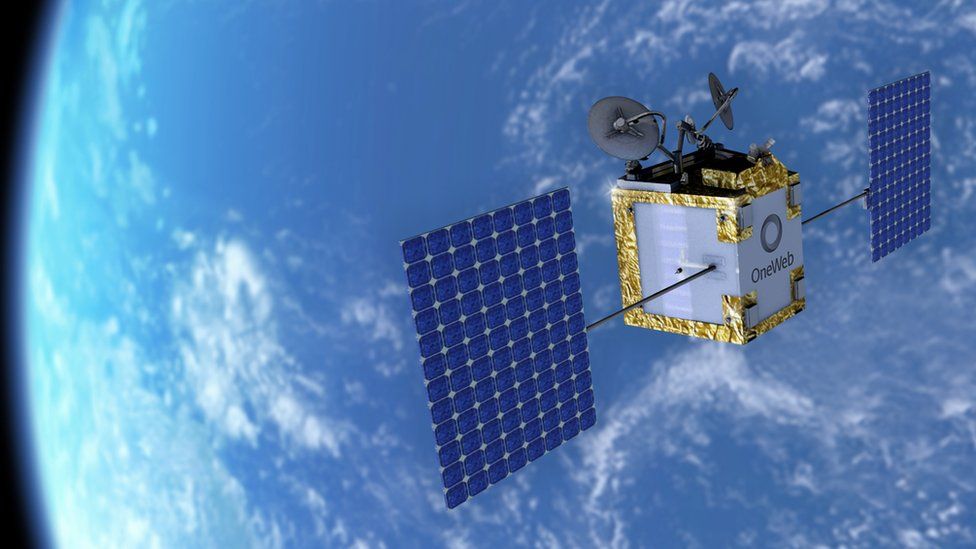The London-based satellite company OneWeb will resume launches of its spacecraft using rockets operated by its American competitor, SpaceX
Both firms are building constellations in the sky to deliver broadband internet connections.
But while SpaceX can send up its Starlink system using its own rockets, OneWeb was left looking for rides when the Ukraine war forced it to abandon the use of Russian Soyuz vehicles.
OneWeb has now contracted SpaceX.
It’s hoped the first of a series of launches can take place before the end of the year.
“We thank SpaceX for their support, which reflects our shared vision for the boundless potential of space,” OneWeb CEO Neil Masterson said in a statement.
“With these launch plans in place, we’re on track to finish building out our full fleet of satellites and deliver robust, fast, secure connectivity around the globe.”
The terms of the agreement with SpaceX have not been disclosed.
OneWeb is part-owned by the British government.

SpaceX has more than 2,000 satellites in its Starlink system in orbit, although it is following a different architecture from OneWeb that is much lower in the sky. Every week or so the Hawthorne, California-based company adds to its network by sending up yet another batch of Starlinks on one of its reusable Falcon rockets.
Contracting with SpaceX to use the Falcon vehicle was really the only near-term option for OneWeb.
With the withdrawal of Soyuz from the international market because of sanctions, there is now a dearth of rockets in the class that can send up batches of satellites in the way required in OneWeb’s business plan.
Although SpaceX and OneWeb are both pursuing the same goal of broadband internet from the sky, they are targeting in the first instance somewhat different sectors.
Whereas SpaceX will sell connection terminals direct to the consumer, OneWeb is focused instead on selling its connections to telcos. These partners would then offer the OneWeb system to customers as part of their package of internet solutions.
OneWeb was launching 34-36 satellites at a time on the Soyuz rocket. The spacecraft were held at the top of the vehicle to be deployed in space by a structure called a dispenser. This hardware will need to be adapted to work on the Falcon.
OneWeb continues to turn out 1-2 satellites a day at its factory in Florida.

